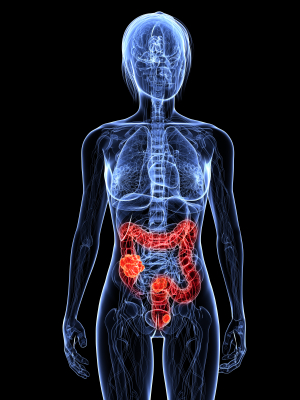Newsflash: HRT, a “complex pattern of risks and benefits”
I’m not sure if you saw the headlines yesterday in light of news on the government shutdown but the healthwebz are buzzing about a study published in published in JAMA evaluating outcomes in the now infamous Women’s Health Initiative and the utilization of hormone replacement therapy (HRT) for menopausal symptoms. My only question is why do we keep beating this dead horse?
However, I would be remiss if I did not share the highlights of this latest analysis. So here’s what you need to know and honestly, it’s not very different than the stance of other organizations:
- The study or analysis, if you will, provides a detailed overview of the findings from both the original and extension trials of the WHI, looking at both combination and estrogen alone hormone therapy.
- Overall, the risks of combination therapy appear to have outweighed the benefits during the trial. During the extension period, the risk for heart disease remained elevated, a reduced risk for endometrial cancer was seen. Among women who had had hysterectomies before taking HRT, a more balanced risk/benefit equation was seen.
- With regard to breast cancer, the risks of taking combination therapy versus estrogen alone are not equal; more women have adverse effects from combination therapy.
- Proponents of HRT have long argued that age matters. The researchers involved in this analysis state that age influences the effects of hormone therapy ‘in some cases’ as does time since menopause onset, and that results appear to be better for younger versus older women, at least in terms of overall death rates due to all causes, deaths due to heart attack and deaths due to cancer.
- HRT appears to have a more harmful effect on coronary heart disease when used in older women; the effect on younger women is unclear. They say that further research is needed.
- Less clear is the link to breast cancer. While the researchers acknowledge that combined hormones may increase breast cancer incidence and cancer is diagnosed at a later stage, the risk might decline once HRT is stopped. They hypothesize that the progestin component is at play but say that more research is needed.
- While combined HRT may reduce endometrial cancer, it might also increase ovarian cancer risk, as may estrogen alone.
- Combined HRT has been shown to increase deaths from lung cancer, although neither combined or single hormone therapy appears to influence the total incidence of the cancer.
- With regard to diabetes, clot risk, gall bladder disease and dementia? A decrease in diabetes risk during treatment disappears overtime and the risk for clotting and gallbladder disease as well as dementia increase.
The researchers write that the overall findings do not support the use of either combination therapy or estrogen alone for chronic disease prevention, even in younger women. And they note that the risks of combination HRT outweigh the benefits, irrespective of a woman’s age.
Look, I don’t need to cover any additional findings or conclusions. Combination HRT is not all it’s cracked up to be. Speak to your doctor. Analyze your risks and determine if a fewer hot flashes or mood swings are worth it. Only you can decide. Me? I’m sticking with the devil I know and like: alternative strategies.
Read More
Wednesday Bubble: HRT. One Size Does Not Fit All
When it comes to medical strategies, one size never fits all. Dosages and directions for use need to be individualized. Genetic factors, current health status, age, diet, exercise and weight play important roles. As do total health outcomes.
Earlier today, I was reading an article* for a project that I am working on and ran across the following sentence:
“Clinicians are interested not only in improving symptoms, but also in total outcomes, i.e. changes in patients’ current and future health due to effects of treatment.” The author, Dr. Michael Blaiss, goes on to explain that not only is the clinical response important, but also, quality of life and cost should be taken into consideration.”
I can think of nowhere where this statement is more important than in the treatment of menopausal symptoms. One size, indeed, does not fit all. Therapeutic strategies should be individualized and address a woman’s specific symptoms, her age, her current menopausal status, smoking history, health history, diet, genetics and preferences. A single tablet is no more the answer than a standardized dose of hormone replacement therapy (or menopausal replacement therapy — MHT — as it is called in other developed nations).
Recently, a group of organizations** devoted to menopause, reproductive medicine and endocrinology convened to issue a new statement about the use of hormonal therapy during menopause. To be entirely honest, this is the first time that I’ve believed such a statement is without bias and was not driven by pharmaceutical interests. It also appears to reflect the total outcomes concept. And so, I wanted to share a summary of a few key recommendations so that you can make an informed decision about addressing your menopausal symptoms.
- Menopausal Hormone Therapy or MHT is [one] of the most effective treatments for vasomotor symptoms but benefits are likely to outweigh risks [only] before age 60 or within 10 years after menopause. It is also effective for prevention of osteoporosis-related fractures in at risk women but again, only before age 60 or within 10 years after menopause.
- While estrogen alone may decrease the risk of heart disease and death from heart disease in women under age 60 (again within 10 years of menopause), similar evidence for combined hormone replacement in terms of heart disease has been found. It neither prevents or increases the risk of heart disease.
- Vaginal dryness? Try local estrogen and not systemic; it is preferred.
- The risk of stroke increases with MHT; patches may offer lower risk.
Contrary to widespread data, the organizations continue to dispute the connection between breast cancer and MHT, however, they do emphasize that current safety data do not support the use of MHT in breast cancer survivors. Finally? the consensus statement emphasizes that the decision to use MHT is complex and must take certain factors into account, factors such as quality of life, health priorities and personal risk factors. Dose and duration must also be individualized, consistent with goals, and in consideration of safety issues.
If you want to learn more about HRT and its risks/alternatives, I’ve been writing about the issue and the data for almost five years now. You can start perusing the archive of information here. Meanwhile, be smart, be vigilant, ask questions. Don’t accept the idea that a pill or a single solution exists; it probably doesn’t. And mostly? Keep the faith. I’ve got your back. Promise.
*Blaiss MS. Cognitive, social and economic costs of allergic rhinitis. Allergy and Asthma Proc. 2000;21:7-13.
** The American Society for Reproductive Medicine, The Asia Pacific Menopause Federation, The Endocrine Society, The European Menopause and Andropause Society, the International Menopause Society, the International Osteoporosis Foundation and the North American Menopause Society.
Read MoreMore on HRT and your gut
Back in April, I shared news that researchers would be reporting a strong link between ulcerative colitis and hormone therapy at an upcoming American Gastroenterology Association meeting. That study has now appeared online in Gastroenterology journal so I thought I’d fill in a few blanks.
Ulcerative colitis refers to chronic inflammation of the lining of the colon, leading to crampy abdominal pain, diarrhea and general discomfort. Although it is a form of what doctors refer to as inflammatory bowel disease and is very similar to Crohn’s Disease, it only affects the lining of the colon. I am quite familiar with colitis as a close family member suffers from it and I can assure you that it’s no picnic. In addition to genetics, risk factors include smoking, environment and the use of NSAIDs. And it can be exacerbated by stress, low levels of antioxidants and even milk consumption. It also appears more often in Caucasian whites and slightly more women than men.
Importantly, previous studies have demonstrated an association between oral contraceptive use and risk of ulcerative colitis in premenopausal women, although data are pretty scarse in the older age group who are in menopause. Yet, there appears to be some sort of impact of exogenous estrogen, i.e. not manufactured in the body but taken adjunctively, in that it may modify genes that protect the colon from bacteria and toxins as they pass through the GI tract, thereby exposing women who take them to increased risk.
This has been borne out by data culled from over 108,000 women participating in the Nurses Health Study, one of the largest ongoing research initiatives focusing solely on factors that influence and impact women’s health. After ruling out factors that might influence findings, such as age, smoking and body-mass index, as well as prior oral contraceptive use, the researchers learned that women who had used HRT had a significant risk for developing ulcerative colitis compared to women who had never used HRT. Current users had a greater risk than past users. Moreover, risk increased with longer use of hormones and declined as over time after stopping HRT. It did not appear to matter if hormone therapy was combination estrogen/progestin or estrogen alone.
The researchers write that their findings should be used primarily to provide insight into the possible ways the ulcerative colitis develops. However, even if it is clear that there are many other reasons why women should carefully weigh the risk versus benefit ratio with HRT used, I still maintain that this particular association is as important as others.
In the four and a half years that I have been writing about menopause, HRT has been linked to breast cancer, deaths from lung cancer, ovarian cancer, heart disease, stroke, gallbladder disease and now, ulcerative colitis.
Do the math.
Read More
HRT Personalized?
Have you heard of personalized medicine? This burgeoning movement in healthcare focuses on the individual and not the masses and relies on our unique biological and genetic profiles to guide therapy choice.
With all the hullabaloo over hormone replacement therapy (HRT), mixed data about risks and benefits and a lack of a clear path for women who choose to go this route, personalized medicine might hold the answer. In fact, in an online review in Metabolism, authors are exploring the very idea that some women may be more ideally suited than others for hormone therapy. Personalized medicine may also make it possible to tailor dosing, formulation and even route of delivery to make the benefit-risk ratio, which we know has been swinging toward the negative, more balanced and favourable.
Although a recent report has come out disputing the role of hormone therapy in increasing risk for heart issues, data from the Women’s Health Study showed that compared to placebo, women who took combination hormones were 24% more likely to develop heart disease (i.e. heart attack or coronary death), up to 40% liklier to have a stroke and twice as likely to develop a blood clot in the lungs. Women who took estrogen only had almost a 40% increased risk for stroke and a trend towards an increased risk for developing a clot in the arteries leading to the lungs. Yet, these results might not be applicable to all as research suggests that factors such as age, time since the onset of menopause, LDL and other cholesterol levels and the presence or absence of metabolic disease may be able to help identify women who are better versus worse candidates for HRT (and likely or less likely to have elevated risk). Moreover, emerging evidence suggests that women who already have an elevated risk for stroke should either avoid systemic hormone therapy or choose a safer delivery method, e.g., a transdermal (through the skin).
A number of experts believe that using lower doses of hormones, bioidentical compounds, and going the transdermal route may very well change the benefit/risk ratio as well, primarily due to reduce blood levels of circulating hormones or as with transdermals, the fact that the drug doesn’t pass through the liver. In some cases, however, the data are scant and randomized clinical trial evidence, also referred to in medical circles as evidenced-based medicine, may be lacking. Still, I do believe that personalized medicine may hold the key for millions of women who can’t find relief through alternative strategies or simply desire more immediate relief. Perhaps some of these very factors that researchers are exploring will remove some of the roadblocks. Meanwhile, pay attention to the variety of factors that may the golden ticket — factors like age, time since menopause, heart health, existing breast cancer risk, biomarkers in the blood and genetic predisposition. Who knows? HRT personalized might be just around the corner.
Read MoreFeeling wheezy? HRT may be that albatross around your neck…
Did you know that asthma affects an estimated 300 million people across the globe? That’s roughly one in 20 and it’s incidence is expected to rise over the next few years, especially in urban areas. However, did you also realize that researchers believe that there may be a connection between reproductive status, reproductive hormones and the development of asthma? In fact, while early on, asthma occurs in greater rates among boys than girls, this flips in puberty and by the time early adulthood hits, twice as many women as men suffer from asthma. As women start to age, however, the role of hormones is less clear, with some research showing that asthma rates decline through natural menopause, early or surgical menopause may be associated with greater risk.
Despite an extensive review of available studies, the evidence for the link between asthma and menopause remains limited, except among women who experienced early menopause and started using hormonal therapy. Take note that while this increased risk was minimal, it is in direct conflict with reports that claim that hormone therapy actually protects against asthma! Indeed, it is believed that low levels of estrogen may act to protect against the development of asthma while abnormally high levels, such as those created by exogenous hormones, can increase it. And it’s not the first time that I’ve come across this link (check out these earlier posts!). Additionally, it may be possible that women who go through early menopause may have hormonal imbalances that are linked to respiratory issues and illness.
Still, the association is unclear and it’s likely to factors other than gender and hormones also play a role in asthma, such as genetics and metabolism. In the meantime? Be mindful that replacing estrogen may not be the most natural pathway and perhaps, its decline, despite being associated with a myriad of troublesome symptoms like flashes, sweats and swings, is also protective.
If you are feeling wheezy and don’t take hormones, it’s probably not the ‘pause. If you are on hormone replacement and notice changes in your breathing, take pause and get yourself in to see a practitioner.
Read More











